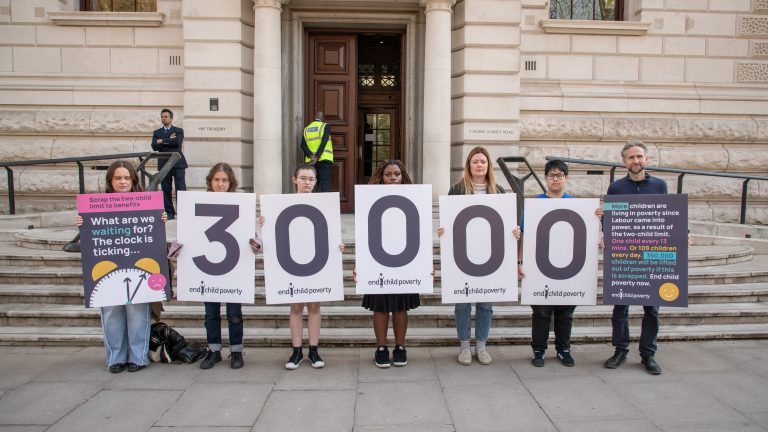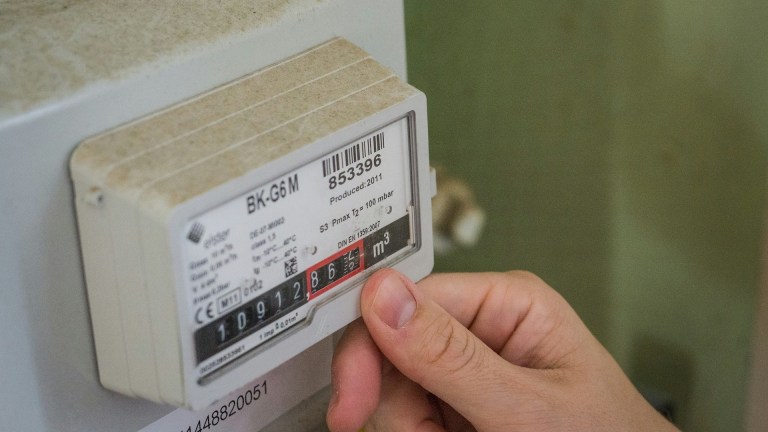The report comes just days after one in eight renters were revealed to be behind on their housing costs as a result of the UK’s economic shutdown – with a fifth of private renters losing jobs or being furloughed – forcing some tenants to go without essentials like fresh fruit and vegetables.
These findings make for pretty horrific reading
The Department for Education’s voucher scheme gives families in England £15 per child per week to spend in supermarkets to cover the costs of meals that would otherwise have been given out in school for free.
But the initiative has been plagued with problems, including a two-week delay from the beginning of lockdown to the electronic system being launched to families finding they can’t spend the vouchers in their local budget supermarkets.
The devolved governments in Scotland, Wales and Northern Ireland opted for different methods of supporting families on low incomes during lockdown, primarily direct cash transfers and coordinated food parcel systems, which researchers said were proving more effective.
Figures from the study, released a week after English schools opened to some year groups and the Welsh Government said its schools would open doors at the end of the month, showed a significant decrease in the amount of fruit kids were eating – when they were only eating an average of one portion per day before the school closures.
Over the three days of lockdown studied, 45 per cent said they didn’t eat any fruit, with the rest of the children eating an average of half a portion per day.
Advertising helps fund Big Issue’s mission to end poverty
And the responses focused on vegetable intake showed an even bigger drop – with 55 per cent reporting that they’d eaten no fresh vegetables during the locked-down three days, and the mean veg consumption dipping from a little over two portions per day while schools were open to an average half a portion per day.
The Healthy Living Lab researchers, including director and Big Issue Changemaker Professor Greta Defeyter, worked with nearly 60 nine-to-twelve-year-olds across London and England’s North East. They filled in questionnaires focused on their eating, sleeping and physical activity spanning three days before lockdown and three days during which were sent back to the team by parents.
At the same time the amount of sugary drinks consumed by the kids quadrupled – and their consumption of unhealthy snacks like crisps and chocolate soared from around one in the space of three days pre-school closures to six portions across three days of lockdown.
And 35 per cent of children reported having skipped at least one meal a day during lockdown, marking a 10 per cent rise on the figures from before schools closed.
Professor Defeyter is director of the leading specialist research project which investigates ‘holiday hunger‘, the problems faced when families on low incomes are forced to cover the costs of feeding children who are home all day instead of being at school where they receive free meals.
Advertising helps fund Big Issue’s mission to end poverty
She said: “These preliminary findings make for pretty horrific reading.
“As a nation our shopping habits have changed, with an increase in shopping online and shopping locally. However, if a parent doesn’t have internet access or has a low data allowance, can’t afford the minimum shop for free delivery, or lives in a ‘food desert’ that is populated with fast food takeaways then it is hardly surprising that, in the absence of free school breakfasts and free school lunches, some children’s overall dietary intake has changed.
“While I welcome the fact that more supermarket chains are now included in the Department for Education’s voucher scheme the preliminary findings in our report highlight wider, systematic, societal failures.”
We urge the UK government to rethink school summer holiday provision
Defeyter added that children from low-income backgrounds will be put at a particular disadvantage when schools kick-off the new academic year in September as a result of a lack of healthy food and having missed out on more learning during school closures than their well-off peers.
Baroness Boycott, chair of food charity Feeding Britain said: “The social and economic consequences of coronavirus are exposing millions of people in our country to hunger and malnutrition.
“As these preliminary findings show, we need a seamless year-round programme of nutritious meals for all children which incorporates school breakfasts and dinners, as well as a continuation of that service, alongside enriching activities, during the holiday periods.” The baroness said automatically registering eligible families for Healthy Start vouchers, the take-up of which she called “pitifully low”, would go some way to making fresh fruit and veg more accessible to children in need.
Advertising helps fund Big Issue’s mission to end poverty
Professor Defeyter called for the Government to estbalish a universal school meal service for all kids to make sure there is a level playing field for access to healthy food and nutrition education.
She added: “In the immediate term, we urge the UK government to rethink school summer holiday provision to ensure that all children from low income households are provided with the opportunity to access healthy food, cultural, social and physical activities during the upcoming holiday period.”
Last week a spokesperson for Boris Johnson announced that the current supermarket voucher scheme would not run over the summer, despite many families facing a particularly tough time during the holidays – with many already struggling to make ends meet as a result of pandemic job losses, they will also soon be tasked with covering the costs of meals their children would get for free at school.
Instead he suggested the expansion of a £9m fund that supports holiday and meal clubs – something charity Feeding Britain said only a few areas benefit from, and which Sustain UK said would help just 50,000, or 4 per cent, of the children entitled to free school meals.
Sustain is teaming up with the Good Law Project to bring court action against the Government if ministers don’t announce measures that will ensure the 1.3 million children reliant on free school meals are not going hungry this summer.
Foodbank demand reached a record high in the UK during the first month of lockdown after the Covid-19 crisis plunged more families into destitution. The Trussell Trust venues recorded a nearly 90 per cent jump in the need for emergency food parcels compared to the same month the year before, while services across the Independent Food Aid Network had to stretch resources to meet the massive 175 per cent surge in people forced to turn to them for help getting food.
Advertising helps fund Big Issue’s mission to end poverty
It pushed campaigners to call on the Government to provide direct cash payments to families in England to cover their food costs, echoing the team behind a Human Rights Watch investigation which found a series of failures in the school meal replacement voucher scheme was so severe that it was violating kids’ right to food.
Dr Emily Mann, who worked on the Healthy Living Lab study, said the food voucher scheme was not doing the job for some families, with some facing long waits to receive the vouchers and some shops not accepting them.










